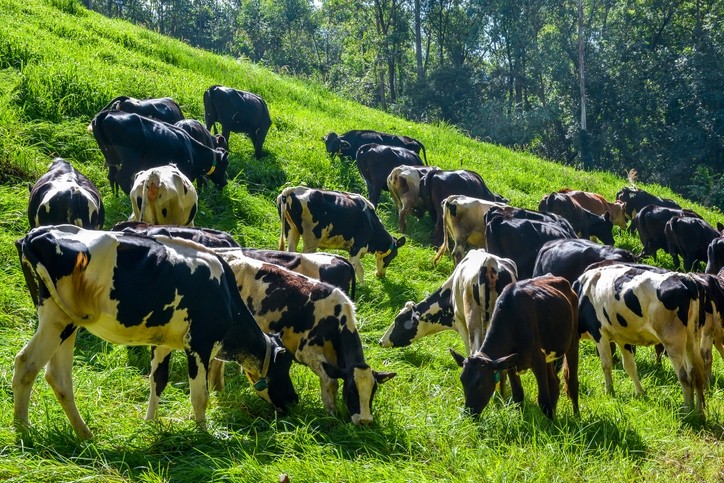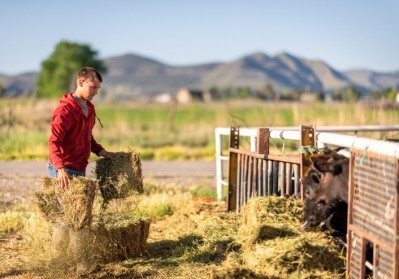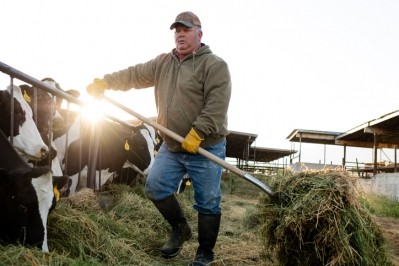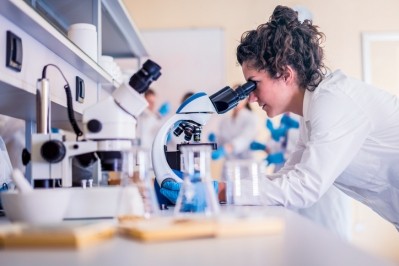Feed has role in Chobani's transformation of its 'milkshed'

The New York-headquartered yogurt company announced last month that it was starting a 'Milk Matters' program to provide support and address the challenges faced by members of the dairy industry, the company said.
'Milk Matters' was developed following conversations with industry stakeholders including farmers, farmworkers, officials and dairy industry experts.
“Dairy is at a critical point of evolution in the US. The industry has been hurt by record-low milk prices, dropping dairy consumption rates, industry consolidation, and global competition,” Chobani, LLC told FeedNavigator. “But there are also more voices than ever before regarding the environmental and social impacts of this commodity, and we want to respond to those concerns.”
The company was interested in helping the community but wanted to establish more than a “short-term solution,” Chobani said. “Our Milk Matters program was over one year in the making and there were extensive conversations with all members of our supply chains to ensure everyone’s voice was heard and accounted for – we developed a program that looks at the dairy system as a whole, not an issue in isolation.”
The program was intended to demonstrate the company’s commitment to the company said. It seeks to address the economic, environmental and social effects from producing the milk it uses in its products.
Through the program, Chobani is set to work with dairy farmers, co-op partners and organizations including Fair Trade USA, National Milk Producers Federation, Cornell University and the World Wildlife Fund, along with community foundations and state programs in Idaho and New York.
The program targets six “pillars” for change including animal care, feed “freedom and flexibility,” worker well-being, environmental stewardship, dairy community investment and local milk sourcing, the company said. Milk Matters is set to be fully implemented by 2025.
Non-GMO feed
Work on developing the freedom and flexibility pillar included a look at the use of GMO feed ingredients, the company told us. “We’ve studied and reviewed this topic very carefully,” the company added.
“We listened to local dairy farmers, dairy cooperatives, and leading academics,” Chobani said. “When it comes to the grains a farmer feeds their cows, Chobani is giving them the freedom to farm as they know best.”
“We refuse to mandate the use of non-GMO feed, a practice that places an undue financial burden on farms without enough demonstrated value to the planet or people,” the company added.
However, the ingredients used by the company continue to be not genetically modified or non-GMO, the company said. “The fresh milk we use to make our yogurt is not genetically modified, according to the criteria applied by the US Department of Agriculture, the EU, and specific state criteria,” it added.
Components of Milk Matters
Now that the program has been launched, the next step is to move forward with the elements of the initiative, Chobani told us. Several components were not new for the company, but the project is collecting them under “one umbrella.”
“For example, we’ve bought our dairy locally from day one, and that’s not going to change,” the company said. “We’ve also added another component to our local sourcing commitment by joining the New York State Grown and Certified and Idaho Preferred programs, which recognize products that are grown or produced in-state.”
In the focus on environmental stewardship, farms working with the company will complete the National Milk Producers Federation’s Environmental Stewardship course to establish their greenhouse gas (GHG) emissions and energy use, the company said.
“By identifying potential improvement opportunities to reduce their score, farms can reduce their environmental footprint as well as identify potential cost savings,” it added.
Chobani is also working with the WWF to develop its set of environmental indicators that can be used as metrics for producer stability including soil health, nutrient management, water quality and quantity. The company already measures its own carbon footprint annually.
“Milk production is included in our GHG emissions calculation and we also measure feed production,” the company said. “We continue to engage with the dairy cooperatives we work with understand how they continue to reduce their carbon footprints and manage their GHG emissions.”
Additionally, the company is working with Cornell University’s Cornell Pro-Dairy program and New York State’s Dairy Acceleration Program to support smaller producers with fewer than 300 cows, the company said.
The programs provide support for small projects that address a specific business needs like work on future business planning or upgrading dairy parlor technology to save energy.
“Projects may also include reviewing current feed and forage grown on-farm for maximum efficiency and cost savings as well as evaluating comprehensive nutrient management planning to optimize manure nutrients, minimize purchased commercial fertilizers, and mitigate nutrient and soil losses,” the company added.














